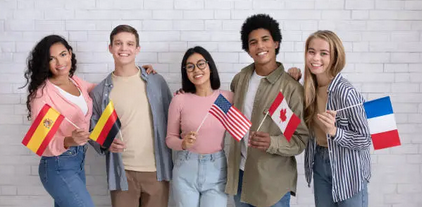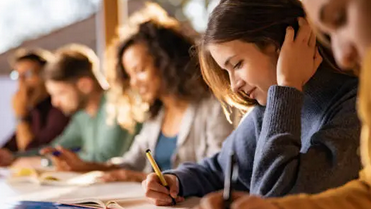NIAS – NIOD – KITLV Fellowship 2025-2026: Moving Objects, Mobilizing Culture in the Context of Decolonization
The Moving Objects, Mobilising Culture fellowship is a unique opportunity for researchers and professionals from formerly colonised countries to engage with collections and objects originating from their regions but currently housed in the Netherlands. This initiative seeks to foster deeper understanding and dialogue around the historical and cultural significance of these objects, as well as explore questions of restitution, alternative narratives, and the social life of moving objects. For the academic year 2025-2026, two fellowships will be awarded during the first semester (September 2025 – January 2026). Funded by the Dutch Ministry of Education, Culture, and Science through the Colonial Collections Consortium, this program aims to bridge gaps between heritage institutions and communities of origin, promoting innovative research and meaningful engagement.
Fellowship Overview
This fellowship is open to a diverse range of applicants, including historians, archaeologists, social scientists, heritage practitioners, artists, journalists, and cultural activists. It provides an invaluable platform for individuals based in formerly colonised countries to study and connect with collections that have been relocated to the Netherlands over time. By facilitating access to museums and archives affiliated with the Colonial Collections Consortium—such as the Wereldmuseum, Rijksmuseum, Museum Bronbeek, and the Cultural Heritage Agency of the Netherlands—the fellowship enables participants to delve into the complex histories and contexts surrounding these objects.
Key aspects of the fellowship include:
- Number of Fellowships: Two
- Duration: Five months each (September 2025 – January 2026)
- Eligibility: Researchers and professionals from formerly colonised countries whose collections are held in the Netherlands.
- Host Institution: The Netherlands Institute for Advanced Study (NIAS), supported by the Netherlands Institute for War, Holocaust and Genocide Studies (NIOD) and the Royal Netherlands Institute of Southeast Asian and Caribbean Studies (KITLV).
- Funding: Travel costs within the Netherlands will be compensated up to €500 per fellow.
Through this fellowship, participants gain access to invaluable resources and networks, empowering them to conduct research that contributes to broader conversations about cultural heritage, colonial legacies, and decolonial practices.
Research Scope and Objectives
The primary goal of the Moving Objects, Mobilising Culture fellowship is to enable selected researchers to investigate collections and objects from formerly colonised countries now located in the Netherlands. Fellows are encouraged to explore various dimensions of these objects, including their origins, journeys, and contemporary meanings. Key objectives include:
- Conducting Research on Collections: Fellows will examine specific collections or objects related to their country of origin, exploring their materiality, provenance, and significance.
- Engaging with Archives and Documentation: Access to archival materials allows fellows to uncover the historical context and administrative processes associated with the movement of these objects.
- Exploring Social Histories and Significance: Beyond physical attributes, fellows will investigate how these objects relate to the social, cultural, and political histories of their communities of origin.
- Addressing Questions of Restitution: The fellowship encourages critical reflection on issues of restitution, repatriation, and the ethical responsibilities of museums and institutions holding such collections.
- Establishing Connections with Communities: Fellows are invited to build bridges between heritage institutions and the communities connected to these objects, ensuring that voices from the country of origin are heard and respected.
- Developing Independent Research Agendas: Through this fellowship, participants can develop new frameworks and methodologies for studying the “social life” of moving objects, potentially leading to groundbreaking insights into their roles in shaping cultural identities.
By focusing on these areas, the fellowship fosters a nuanced understanding of the complexities involved in addressing colonial legacies and advancing decolonial approaches to cultural heritage management.
Application Process and Requirements
To apply for the Moving Objects, Mobilising Culture fellowship, candidates must submit a comprehensive application package. This includes:
- Curriculum Vitae (CV): A detailed CV highlighting the applicant’s professional background, qualifications, and achievements. Applicants should also include a list of publications, works, or products relevant to their field.
- Plan of Activities: A concise yet clear outline of the activities the applicant intends to carry out during the fellowship period. This section should not exceed 500 words and should specify how the applicant plans to utilise the resources available at host institutions.
- Outline of Objects or Collections to Be Researched: Candidates must identify the specific objects or collections they wish to study, providing justification for their selection. This portion should also be limited to 500 words.
- Reflection on Relevance to Country of Origin: Applicants are required to reflect on how their proposed research aligns with the needs and questions pertinent to their home country. This reflection should address the potential impact of the research on local communities and stakeholders.
- Contribution to Alternative Histories: Finally, applicants must articulate how their research can contribute to alternative narratives beyond dominant heritage discourses. This section should demonstrate an awareness of the importance of challenging existing power structures and fostering more inclusive understandings of cultural heritage.
All components of the application should collectively showcase the candidate’s commitment to engaging critically and creatively with the themes of the fellowship.
Selection Criteria and Process
A committee comprising representatives from NIOD, NIAS, and KITLV will evaluate all applications. Selection will be based on several key criteria:
- Quality and Relevance of Application: The strength of the proposal, including its clarity, feasibility, and alignment with the fellowship’s goals, will play a central role in the evaluation process.
- Disciplinary, Regional, and Professional Diversity: To ensure a broad perspective, the committee will consider a balanced representation of disciplines, regions, and professional backgrounds among selected fellows.
- Alternative Engagements with Cultural Heritage: While academic credentials are important, the committee values innovative and unconventional approaches to cultural heritage research. Applications demonstrating creative methods or community-focused initiatives will be highly regarded.
Applicants will receive notification of the results by the end of April 2025. Those selected will embark on a transformative journey, gaining unparalleled access to resources and expertise while contributing meaningfully to ongoing debates about cultural heritage and decolonization.
Conclusion: Bridging Past and Present
The Moving Objects, Mobilising Culture fellowship represents a significant step towards reconciling historical injustices and fostering mutual understanding between former colonies and colonisers. By enabling researchers and professionals from formerly colonised countries to engage directly with collections originating from their homelands, the fellowship promotes transparency, accountability, and collaboration in the realm of cultural heritage.
For successful applicants, this fellowship offers far more than just financial support—it provides a platform for intellectual growth, professional development, and active participation in reshaping narratives about colonial legacies. Through rigorous research, thoughtful engagement, and constructive dialogue, fellows can help redefine how we view and value the objects that link past and present, bridging divides and paving the way for a more equitable future.
With an application deadline of 17 March 2025, 12:00 CET, aspiring researchers and professionals are encouraged to seize this opportunity to make a lasting impact in the field of cultural heritage studies. Together, we can mobilize culture, move objects, and inspire change.
Apply here https://nias.knaw.nl/application-form-for-a-nias-niod-kitlv-fellowship



